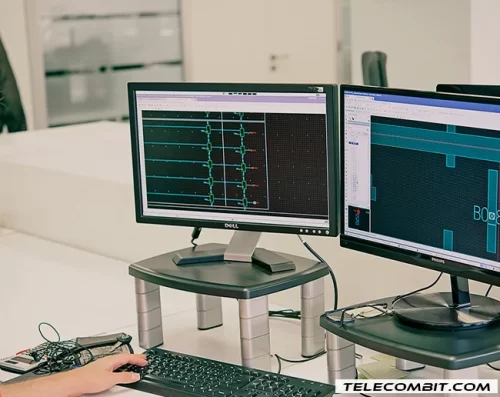Best Paying Jobs in Electronic Components | 2023

As an electronics engineer, you create prototypes for new products in the manufacturing industry or research field. You utilize your design, computer, manufacturing, and engineering knowledge to meet the objectives of your projects, working to develop new products that are both useful and cost effective to make. You may specialize in a specific area of electronic engineering, such as semiconductors, navigation systems, handheld devices, engines, or communication systems. Best Paying Jobs in Electronic Components.
Most electronics engineer jobs require a bachelor’s degree in electronics engineering or a related field, and some electronic engineering jobs also require you to be licensed or certified in a specialized skill set. An apprenticeship or internship will provide you with an opportunity to learn the many aspects of electrical engineering in a hands-on environment to gain the skills and qualifications you need for this career.
High Paying Careers in Electronics
Mixed Signal Design Engineer

Average Annual Salary: N/A
A mixed signal design engineer is an individual who contributes to the success of the lifecycle of a mixed signal integrated circuit. This may include designing analog cells, performing verification tasks, validation and simulation of device assembly, and improving upon an existing block system.
Mixed signal design engineers may also be responsible for client support and maintenance. This job requires individuals to work closely with their team on interface technology as well as collaborate on things such as technical reports, whitepapers, and user documents.
Circuit Design Engineer

Average Annual Salary: $105,000
A circuit design engineer is an individual who develops electronic circuitry found in analog devices. These can include computers, smartphones, televisions, or other similar items. As an engineer in this field, you’ll want to be up-to-date and knowledgeable about the latest advances in circuits.
This job requires the engineer to develop circuit equipment and troubleshoot any issues after installation. They may also be required to supervise the entire manufacturing process in plants and factories to ensure the equipment operates safely and as intended and to perform cost assessments.
Principal Electrical Engineer

Average Annual Salary: $123,000
A principal electrical engineer is an individual who serves as the project manager for any electrical-related building or construction projects. They may design electrical devices, ensure proper installation, inspect final work, and provide work estimates to clients.
They may also be required to supervise junior staff, oversee their work, and ensure all deadlines are met within budget. Principal electrical engineers can sometimes act as the liaison between engineering and leadership teams, typically creating reports and communicating updates between the two teams.
DCS Engineer

Average Annual Salary: N/A
A DCS engineer, or distributed control system engineer, is responsible for operating said system to implement process management and control solutions. They may work in the field at power stations, manufacturing plants, or other industrial plants. They must work in high-pressure environments, responding to emergencies calmly.
Top 5 Highest Paying Jobs in Digital Marketing
- Chief Marketing Officer (CMO)
- Director of Marketing
- Content Marketing Director
- Digital Marketing Manager
- SEO Manager These roles offer high salaries in the digital marketing field.
Other job duties may include DCS systems, troubleshooting problems, and developing and executing improved processes. This is a highly skilled job, and candidates must have qualifications in communication, management, and computers, as well as deep knowledge and experience working in a DCS environment.
Senior Electrical Engineer

Average Annual Salary: $106,000
Senior electrical engineers are individuals who design, develop, implement, and test new electrical equipment and machinery, such as electric cars, electronics, or appliances. Some electrical engineers may be skilled in customizing existing equipment or machinery for special needs.
Senior electrical engineers may be tasked with overseeing a team of junior engineers as well. A master’s degree in this profession is typically preferable, as well as extensive experience in an electrical engineering environment. Additional licensure and certification may also be required depending on your industry.
Why Choose a Career in Electronic Components?
Electronic components appear in virtually every single industry on the globe. This means working in this field can greatly expand your choice of opportunities and give you a unique chance to work wherever you please. Here are some other great reasons to choose a career in electronic components.

Transferable skills
In electronic components, you’ll learn skills that aren’t just applicable to your profession but applicable to everyday things as well. You can fix and diagnose complex issues for different devices and create your own solutions to household problems if you feel so inclined.
New technology
Technology and methodology always change, and there’s a high chance the way you work will too. This keeps things exciting and allows you the opportunity to learn new skills.
Improve and help others
Working with electronic components means the majority of your tasks are based around improving systems that boost the quality of life of your clients. This can have a big effect on someone’s life.
Final Thoughts:
Working with electronic components varies greatly by the job. Electronics, in general, can do a number of important things that keep our society running today. Everything from radio and television to the Internet and cell phones all benefits from sophisticated digital electronic technology. Working in electronics means you can work on everything, from the technology that helps airplanes land to fixing a broken smartphone, meaning your work will never be boring.





